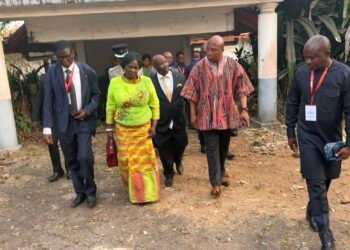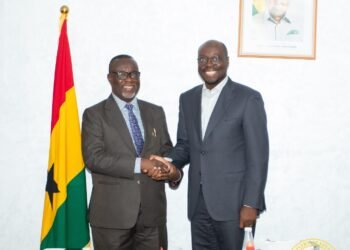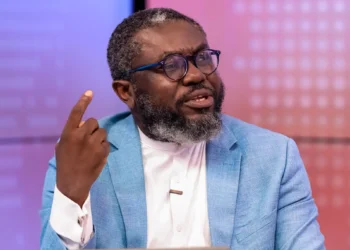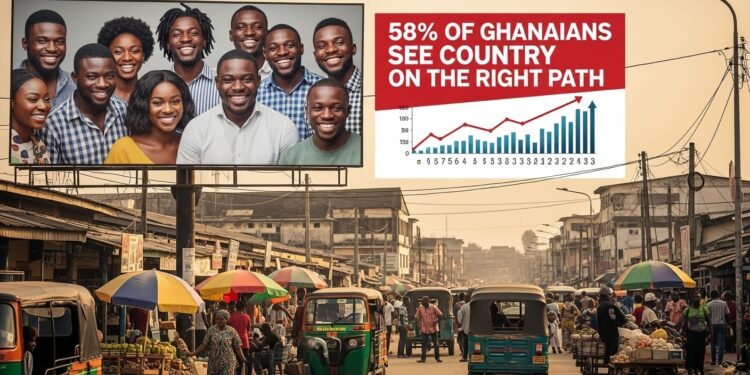The recent public apology by Sammy Adu Gyamfi, National Communications Officer of the National Democratic Congress (NDC), and Chief Executive Officer (CEO) of Goldbod has stirred significant debate around public accountability and ethical standards in Ghanaian politics.
The conversation was ignited after Gyamfi gifted $800 to a former chief priestess turned evangelist, Patricia Oduro Koranteng, a gesture that prompted both scrutiny and praise from various quarters, including economist and policy advocate Senyo Hosi.
“I don’t find it unreasonable for Sammy Gyamfi to possess that amount of US dollars. I find no basis to really say he did anything wrong”
Senyo Hosi, Economist and Policy Advocate
While some critics questioned Gyamfi’s source of funds, others, like Hosi, have emphasized the broader implications of his response to the public backlash.
At the centre of the discourse is a clash between perception, ethics, and expectations placed on public officials, especially at a time when President John Dramani Mahama’s administration is pushing for a higher bar of governance integrity.
Hosi pointed out that the mere possession or gifting of foreign currency is not a legal offence, especially given the increasing dollarization of private transactions in Ghana.
He explained that gifting money is an everyday occurrence and that “practically, almost everybody I think I’m talking to right now may have a dollar or two somewhere or has held dollars at some point in their life.”

His comments sought to reframe the debate around Gyamfi’s actions, focusing instead on motive and transparency rather than the symbolic optics of the $800 gift. Hosi called for measured criticism rooted in facts rather than assumptions about corruption.
Context and Ethical Considerations
With this, Hosi underscored the need for the public to consider the background and pre-existing wealth of public figures before jumping to conclusions.
“Yes, he’s a 37-year-old young man, but if you don’t know people’s story, be patient. While in opposition, he worked as a senior executive of Ghana’s largest cultural mining company”
Senyo Hosi, Economist and Policy Advocate
He asserted that Gyamfi had already acquired assets and enjoyed an affluent lifestyle prior to his current political role, dismissing the idea that the $800 gift signaled wrongdoing. “Respectfully, for somebody who was already living an affluent life before his appointment, I don’t find it unreasonable for him to possess that quantum of US dollars.”
However, Hosi did not defend Gyamfi unconditionally. He acknowledged that public officials are held to higher ethical standards, particularly regarding appearances during national hardship.
Citing international precedent, Hosi referenced a recent statement from the Iranian president about the inappropriateness of public officials displaying wealth during economic crises. “To that extent, I agree that what Sammy Gyamfi did was inappropriate.”
Hosi’s stance struck a balance between acknowledging public frustration and defending Gyamfi from allegations of corruption. He warned against pushing the narrative too far, especially after Gyamfi issued a public apology and admitted fault.

Political Accountability
Hosi further said that “politicians rarely own up to mistakes; Sammy Gyamfi did, and must be commended for that,” in a rare endorsement of a public official’s mea culpa. For Hosi, Gyamfi’s willingness to acknowledge wrongdoing represents a shift in the culture of political accountability in Ghana.
He emphasized the significance of a public servant recognizing their failings not only in the discharge of official duties but also in personal conduct. In his view, this reflects a deepening of democratic maturity and a step towards building trust in government.
“What we saw from Sammy Gyamfi’s urgency is something that I think we must commend and encourage. If they can find accountability to us, then that is definitely a big step in our progress and development of good governance”
Senyo Hosi, Economist and Policy Advocate
The episode has since generated a range of public reactions, which Hosi believes are necessary for Ghana’s political evolution. “There’s now all kinds of feedback, which I think is worth having a conversation about,” he noted.
As Ghana continues to grapple with questions of transparency, corruption, and the ethical responsibilities of public officials, the Gyamfi episode may prove to be more than a fleeting scandal.
It may serve as a defining moment in the country’s ongoing struggle to align leadership conduct with public expectations in the era of President John Dramani Mahama’s renewed commitment to accountable governance.
READ MORE: Investor Confidence Soars as Stock Market Transactions Jump 587% in April 2025























